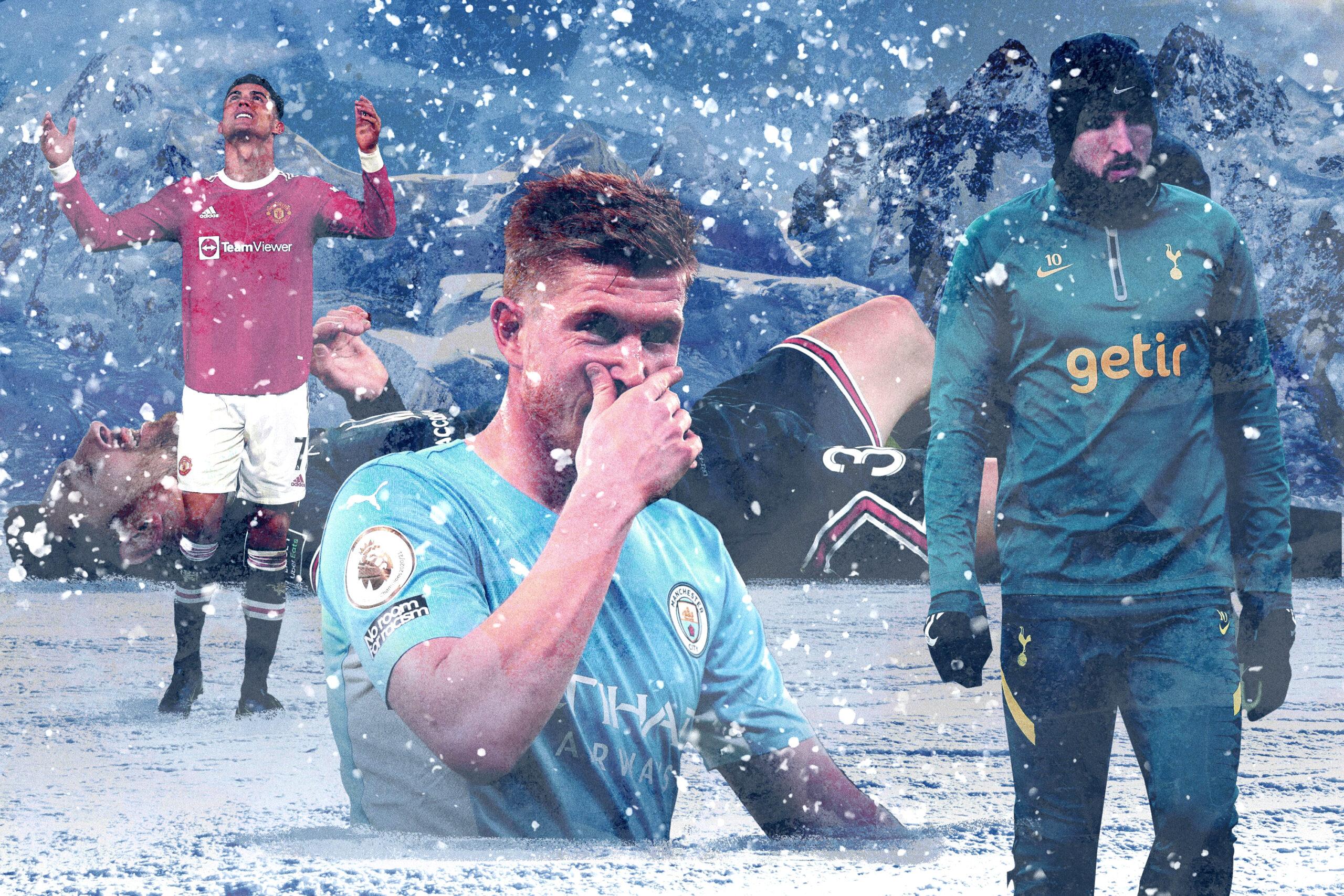
So, things are a bit of a mess in the Premier League:
On Monday, Tottenham were bounced from the Europa Conference League by the governing body itself, UEFA, which awarded a 3-0 win to French side Rennes in the final game of the group phase. The match was supposed to be played on December 9, but a COVID outbreak among Tottenham’s players and coaching staff forced Spurs to postpone—the team’s third such postponement in just over a week. Tottenham’s Premier League opponent scheduled for last Thursday, Leicester, successfully appealed for a cancellation of their own after a combination of the virus and other injuries befell nine members of the squad. Spurs reportedly wanted to squeeze in the Rennes fixture in the event of Leicester’s postponement, but couldn’t, because the Premier League didn’t announce the deferral until the morning of the game—after Tottenham had already traveled two hours north to the East Midlands.
On Saturday, just hours ahead of a scheduled kickoff against Aston Villa, Burnley had their second game in a week called off, the result of mounting COVID infections in the Villa camp. Chelsea fell six points behind league leaders Manchester City after being held to a scoreless draw at Wolverhampton in one of just four top-flight English fixtures that actually took place this weekend. In total, a startling 10 Premier League matches have been canceled due to COVID in a span of less than two weeks. Yet on Sunday, Chelsea manager Thomas Tuchel fielded a side without seven of his first-team players as the league board rejected the Blues’ request for a postponement. Tuchel went on to say the result was down to more than just a ramshackled team sheet: How, given everything, could Chelsea be expected to settle into the game? How could any team? “People are worried because they sat on the bus and had the same dinner,” he explained. “Obviously … we had to play, but you cannot demand 100 percent focus. It was everything else but calm.”
The Premier League is in the middle of another COVID crisis it doesn’t seem to fully comprehend. Even with the proliferation of last-minute cancellations and new cases going “through the roof,” as Brentford boss Thomas Frank said last week, the fixture list is continuing on a distressingly ad-hoc basis. Representatives of the league’s 20 clubs met on Monday to discuss how they’d address the growing problem, and the decision was to kick the can down the road. With an apparent excess of matches needing rescheduling and the notoriously compressed schedule of the festive period bearing down, in effect, if you’ve got 14 active players and a manager to arrange them, you either keep it rolling or face disciplinary action.
How else would the Prem respond, realistically? Let me be the latest person to lament how FoOtBalL is A BuSiNeSs first and foremost, which means the duty to care for the players, staff, and fans comes a comfortable second to the league’s revenue. In November, the Premier League agreed to a renewal on a multiyear, multibillion-dollar TV deal with NBC, reaffirming its position as soccer’s most profitable league. Jam-packing as many games into the days between Christmas and New Year’s is a lucrative tradition; it’s a time of year when families are huddled around the television and free from obligations, and thus have plenty of time to absorb the Premier League’s product. It’s also a time when most other European leagues have gone on winter break, and for a week or so, the Premier League subsumes soccer fandoms all over the world.
So here we are, a really, really far cry away from March 2020, when all of English and Scottish soccer was brought to a screeching halt after Mikel Arteta at Arsenal and Callum Hudson-Odoi at Chelsea separately tested positive for the coronavirus. But this was nearly two years ago now—eventually we stopped listening for the ambulances, became exhausted with conflicting information, turned off our push alerts, linked up with our friends, and sought numbness and reprieve. I can say with only a little exaggeration that the skeletal version of the Premier League that eventually returned saved my sanity. In time, fans returned along with a premature sense of normalcy, and now it’s more or less business as usual, although it really shouldn’t be. Even with the rise of the omicron variant, and the U.K. recording more than 80,000 new cases a day, English clubs have been told to grin and bear it, and postponements come late if they come at all.
Frank, who saw both of Brentford’s games last week pushed back, was among the first to propose a halt to the fixtures. Not having to play Southampton and Manchester United, in his estimation, gave the Bees the breathing room they needed to “break the circuit of transmission of the virus.” You don’t need to look further than the 2019-20 season for precedent, after all—deft scheduling allowed Premier League clubs to carve out a “winter break” for themselves. Why can’t they once again pause things and focus on getting their houses back in order? Or at least limit their stadium capacity and affirm the vaccination status of their players and staff?
Considering clubs just finished handing back cash to TV companies for calling off work two years ago, the answers to those questions are obvious and dispiriting. That would make too much sense and cost too much money.